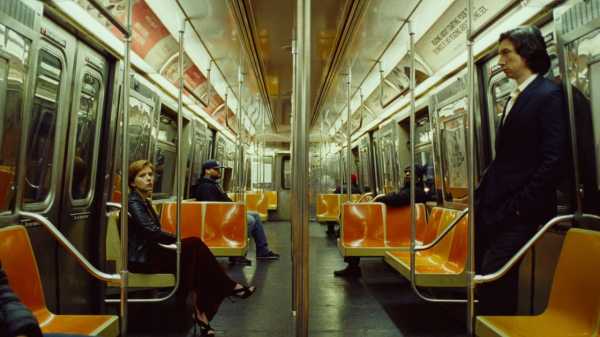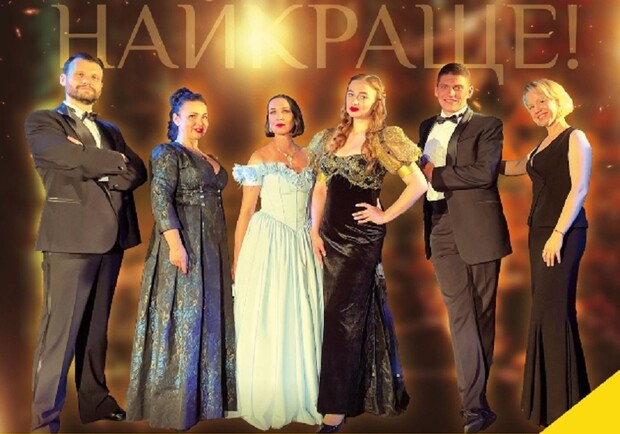
Noah Baumbach’s new film, “Marriage Story” (currently in theatres, and coming to Netflix on December 6th), isn’t so much a story of a marriage as it is a story of stories—of the stories that are told about a marriage as it dies, the role of those stories in the lives of those who are soon to be exes, and, above all, the frameworks that give rise to those stories and prove to be inseparable from their substance. Baumbach’s prime strength as a director is his vision of talk as action. “Marriage Story” is his strongest film because it turns the very basis for that talk into a crucial part of the action—and it goes in surprising directions to reveal the personal importance of such talk and the high price (both literally and emotionally) that its protagonists pay to unleash it.
The movie begins with an elegant ruse: a pair of voice-over monologues by its married couple, Charlie Barber (Adam Driver) and Nicole Ryder Barber (Scarlett Johansson). The monologues detail what each loves about the other: Charlie cites Nicole’s emotional understanding, familial commitment, wide range of skills, personal intensity, total dedication to their son, Henry (Azhy Robertson), and willingness to spurn a burgeoning career as a movie star to work with Charlie in the theatre. Nicole speaks of Charlie’s self-sufficiency, his avidity, his orderliness, his paternal devotion, his strength as a “self-made” man who came to New York from a troubled family and made the theatre—a company that he founded—his home.
These speeches prove quickly to be, in effect, letters never sent, spoken only internally by the two characters. Nicole and Charlie wrote them at the recommendation of a separation mediator, in order to read them aloud at a session in his office. But when the mediator (Robert Smigel) asks them to begin, Nicole puts a stop to the process by refusing to read her piece or to hear Charlie read his. Nicole’s refusal suggests the fragility of her state of mind—the risk that, in reaffirming the couple’s frayed bond, she’ll lose the power to sever it. In effect, the entire movie is one of duelling monologues, spoken and unspoken: two hours of sharp, painful, witty, and elegant talk that is nonetheless rooted in the impossibility of communication. Baumbach presents the elusive nature of love, the ineffable spark at its core and the realm of practicalities by which it’s defined and realized. He testifies to the phrase by Pierre Reverdy made famous by Jean Cocteau: “There’s no such thing as love, there’s only proof of love.”
Though it long remains unclear why the couple is divorcing, it’s clear that Nicole’s dissatisfaction is driving the process. The couple have collaborated on a new production of “Electra” that’s about to move to Broadway—but without Nicole in the lead role. She is marking the separation by relocating to Los Angeles, her home town, for a role in a TV pilot. She moves back in with her mother, Sandra (Julie Hagerty), an actress, and her sister, Cassie (Merritt Wever), also an actress. She gets to work on the TV show, and displays her keen dramatic instincts in the face of oblivious instructions from a studio director. The show’s producer, Carol (Sarah Jones), invites Nicole to join the writers’ room, but she responds that she’d rather direct. Carol also offers her the name of a good divorce lawyer, Nora Fanshaw (Laura Dern), unaware that Nicole and Charlie had promised each other not to hire counsel.
But Nicole does consult with Nora, and from the time of their first meeting Nora more or less dominates the rest of the film with her lethal effectiveness and wide-ranging insight. When Nora tells Nicole that the point of their meeting is to state plainly what she herself wants, Nicole’s frustrations come out along with her reminiscences. She describes how she and Charlie met and instantly fell in love when she was about twenty, a young Hollywood star in a frivolous movie, and he was a talented young stage actor. She joined his theatre company, lent her name to it, brought attention to it—and soon, she says, it was Charlie who became “the draw.” Her prominence shrank, his status rose, and all the while she was fitting into his life—his apartment—leaving her with little identity. He rejected all her suggestions that they live in Los Angeles, and hardly cared that she was cast in the lead of a major TV pilot. She felt that her desires, her interests, and her personality had become subordinated to his, effaced by him—even as he was putting scenes from their marriage and remarks that she made into his plays. It’s almost as an afterthought that Nicole mentions that Charlie had an affair with a co-worker, a stage manager named Mary Ann (Brooke Bloom).
Nora’s sugar-sparkled mien reflects her clear and combative sense of what women are up against. She deploys her legal skills to win for her female clients in court, a measure of the equality and the fairness that they’ve been denied in the more amorphous (and less supervised) settings of work and family. She freely admits that “the system rewards bad behavior,” and her version of this behavior is to reframe Nicole’s view of Charlie and their marriage in order to present as devastatingly negative a portrait as possible, in the interest of making maximal claims regarding property and custody and other matters of contention—above all, in the interest of helping Nicole realize her long-stifled plans and desires.
As the legal clash heats up, with Charlie in New York and Nicole in Los Angeles, “Marriage Story” becomes a tale of two cities and of two forms of media, television and theatre (movies are only in the deep background). She wants to live in Los Angeles and pursue the onscreen career that she’d turned her back on when she decided to be with Charlie in New York. She wants not only to act but also to direct. More than anything, she wants to live away from Charlie’s casually and cavalierly dominating presence.
The crux of their dispute is the custody of Henry. Charlie is no less devoted to him than Nicole is, but Nicole’s decision to reside in California more or less guarantees that the boy will live there with her, and Charlie will have to fly over for periodic visits or receive him for vacations—unless he himself moves. That’s why Charlie’s baseline demand is for Nicole and Henry to return to New York after her series is filmed. Baumbach, presenting Charlie’s perspective as a New York resident with a theatre company and a major production in the works, and his claim that Nicole, too, is a New York resident, doesn’t stint on the practical inconveniences of legal procedures to make such a case—the high cost of a lawyer (Charlie consults one who requires a twenty-five-thousand-dollar retainer), the sheer inconvenience of the related travel, and the stress of the contention (including the fear of being spied on by a private detective).
Charlie’s empathetic, humane lawyer, Bert (Alan Alda), explains the legal system of divorce to Charlie—it’s designed, he says, to protect poor and abused women from deadbeat husbands. And, though Nicole is far from poor and Charlie isn’t a deadbeat, what emerges is that she is, in a crucial way, abused—and that the circumstances of her marriage led her to feel not merely unhappy but voiceless. Nora and the legal system enable Nicole to tell her story seemingly for the first time. The system also weaponizes that story, turning it into an instrument of power. Part of that power involves the tailoring and reshaping of the story to satisfy the anticipated desires of the legal system, whether judges or court-appointed examiners. One key subplot involves Charlie’s clumsy effort to put on a show of fit parenthood for one such expert (played by Martha Kelly), and Nora’s effort to tailor Nicole’s personal narrative to satisfy the same expert. As part of that effort, Nora delivers a monologue regarding the excessive, unfair, and deeply ingrained expectations placed on mothers, a declaration of lucid observation and just anger that, at both screenings I’ve attended, was received in the theatre with applause.
Some of the best twists in the movie involve lawyerly battles (a third, played by Ray Liotta, is also involved). Avoiding spoilers: in the course of legal hearings, Nicole has the sense that her point of view, in Nora’s reshaping of it, is finally being heard by Charlie. Her view of him, of her life with him, of their marriage, is hitting home, wounding his pride, shattering his self-image, bursting his own veneer of amicability, and tapping into his own repressed torrent of frustrations. (He also vents his turmoil and confusion in a piano-bar rendition of Stephen Sondheim’s song “Being Alive”; Driver delivers the song in a few ardent long takes, which also sparked movie-house applause at both screenings.)
Baumbach offers, throughout the film, a warm-hearted and sharply comedic set of behavioral nuances and fillips of dialogue, a finely wrought network of family relationships and work connections. He displays the vanities and uncertainties, the kindnesses and the missteps that evoke the sense of full and complex lives. Yet that intricate texture is also both fragile and diaphanous, revealing in action the frameworks that give it definition. In Baumbach’s vision, when that fine fabric of daily life is rent by emotional turmoil, those frameworks show through all the more conspicuously. Theatre is one such structure; family is another; and the law turns out to be another such structure, and a critical one, which—for all its inconveniences, absurdities, distortions, and pressures—offers a crucial spark and form for life-changing emotional revelations and recognitions.
That’s why, when the couple’s pent-up passions emerge in a scene of unstructured, unmediated personal confrontation, what is revealed is a horror, one that, in its monstrosity, shows, once and for all, exactly why the marriage has ended. Nicole speaks her mind and conveys her experiences and feelings, more or less rephrasing what had emerged in her talks with Nora. Charlie’s retorts are cruel, hateful, self-centered, and abusive. They both lash out in anger, but Nicole starts from a baseline complaint—that Charlie repressed her individuality—and his arrogant rejection of her claim merely demonstrates its validity. If the terrifying scene has a peaceful conclusion, it’s one that’s dramatically earned: it defines the movie’s arc, presenting the confirmation of Nicole’s perspective. The outburst’s chaotically flying elements will settle back into order in the legal framework—not to mention the artistic one.
It’s impossible to ignore parallels between Baumbach’s life and his work. As reported by Ian Parker in his Profile of Baumbach in The New Yorker, in 2013, Baumbach was married to the actress Jennifer Jason Leigh for five years. (Leigh, of course, comes from a notable family of movie people, as does Nicole.) Baumbach and Leigh separated in 2010, soon after the birth of their son. The following year, Baumbach and the actress, writer, and director Greta Gerwig began a relationship. They had worked together on his movie “Greenberg,” which was filmed in 2009; as Parker reports, “Baumbach and Gerwig firmly place the start of their romance at a point after his separation,” and adds, “Baumbach thinks that aspects of his divorce might eventually appear in his work.”
What’s peculiar about the presentation of Nicole and Charlie’s divorce, from the perspective of a male director who, like Charlie, uses aspects of his personal relationships in his work, is (spoiler alert) the happy ending. Nicole enjoys a fulfilling personal life and great professional success apart from Charlie in her new life, and this cuts both ways. It’s simultaneously a tribute to her untapped abilities and an accusation levied against Charlie for not acknowledging or fostering them, but it also lets the character behind the scenes—the director, Noah Baumbach, who in real life went through a divorce from a major actress—off the hook. In effect, the filmmaker tells the world, she’s better off without me.
That’s also where “Marriage Story” reveals its limitations. Baumbach’s canny and intricate construction of the film’s action and dialogue makes “Marriage Story” his most developed and original film. But he doesn’t risk breaking his own frames to acknowledge the offscreen dramas, the lives behind the characters, and what his movie implies for them. Charlie is presented as a dramatist who makes use of his and Nicole’s private life in his own work; the implications are nowhere in the movie. It’s that opacity to itself that blocks the way for “Marriage Story” to the summit of cinematic achievement.
Sourse: newyorker.com




